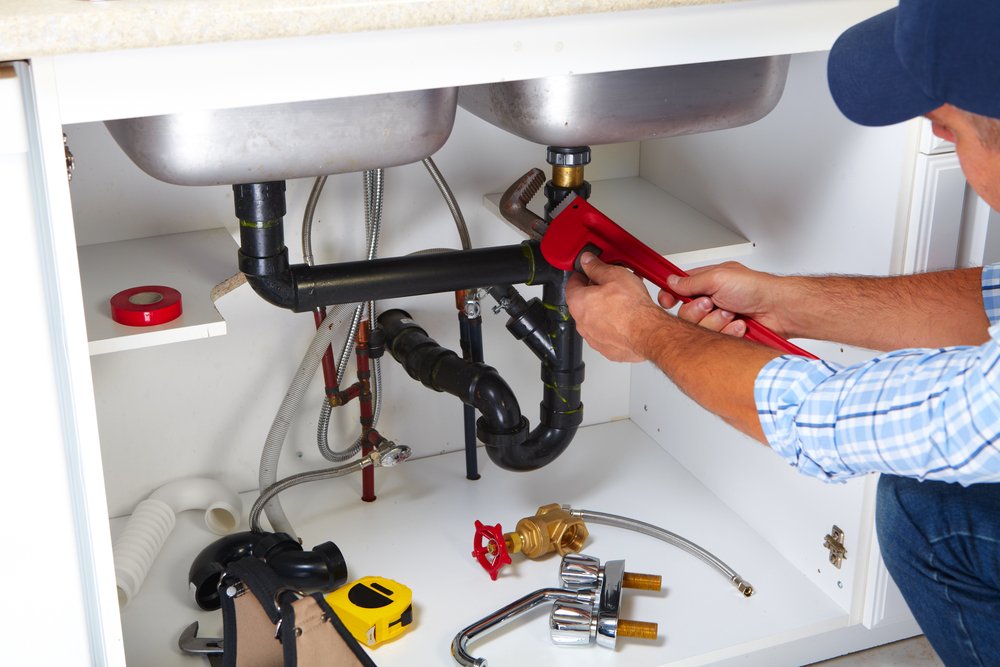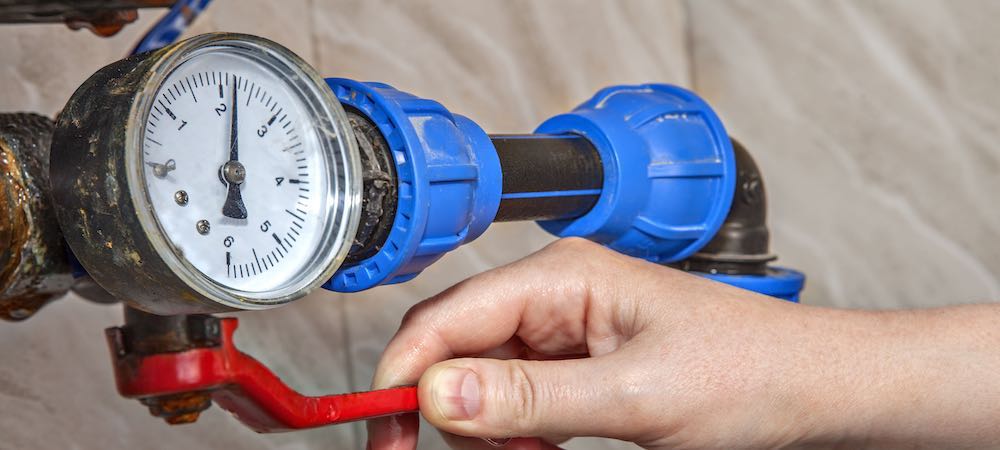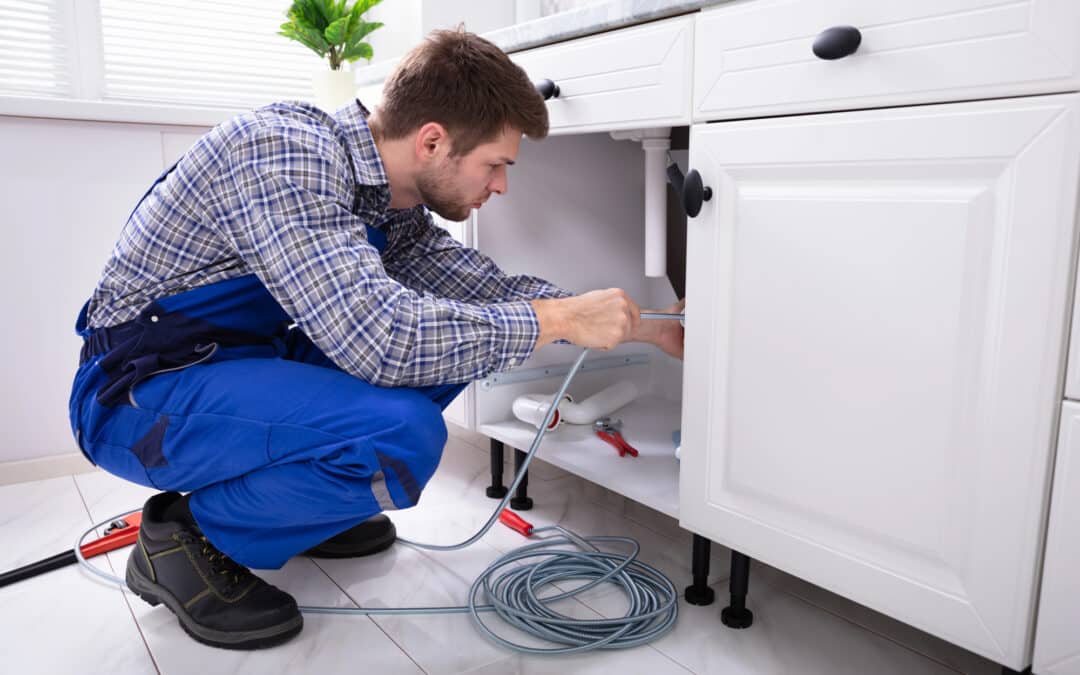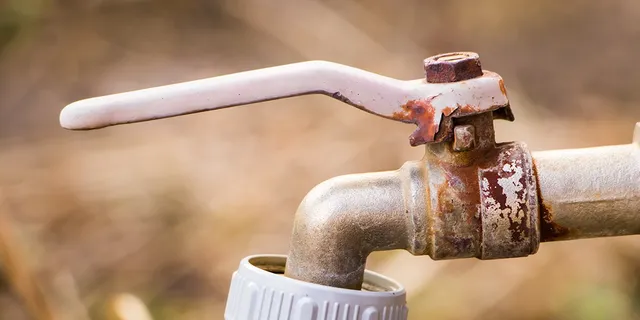To maintain your plumbing system year-round, check for leaks regularly, insulate pipes, and keep drains clear by avoiding grease and debris. Schedule annual inspections and flush your water heater to prevent costly issues and keep everything running smoothly.
Proper plumbing maintenance prevents costly repairs and ensures your home’s water system functions efficiently. Use these practical tips to keep your plumbing in peak condition all year.
Inspect for Leaks Frequently
Leaks are a significant source of wasted water and increased utility bills. A single leaky faucet can waste 8 gallons daily, while a running toilet wastes up to 200 gallons per day.
Take time each week to inspect faucets, toilets, and visible pipes for signs of dripping, pooling water, or water stains on walls and ceilings. If you notice any of these signs, act immediately to prevent further damage.
For professional help, explore our emergency plumbing services.
Keep Your Drains Clear
Clogged drains disrupt daily activities and may damage your plumbing system. Avoid this issue by being cautious about what goes down the drain.
- Do not flush: Wipes, paper towels, or hygiene products—even those labeled flushable.
- Use drain covers: Prevent hair and debris from clogging your bathroom and kitchen drains.
- Dispose properly: Never pour grease, coffee grounds, or fibrous food waste into your sink.
If you’re dealing with frequent clogs, regular maintenance is essential. Learn why it matters: why regular drain cleaning is essential.
Manage Your Water Pressure
High water pressure might seem convenient but can cause serious damage over time. Ideal pressure for home plumbing is 40-50 psi. Too high, and it strains pipes and joints; too low, and it may indicate leaks.
To check your pressure:
- Use a pressure gauge on an outdoor spigot.
- Contact a plumber if the reading exceeds 60 psi to install a pressure regulator.
Flush Your Water Heater
Your water heater works hard year-round. Over time, sediment accumulates in the tank, reducing efficiency and lifespan.
To maintain its performance:
- Drain and flush the tank annually.
- Keep the thermostat set at 120°F to save energy and avoid scalding.
Protect Your Pipes in Winter
Freezing temperatures can burst pipes, leading to expensive repairs. Insulate exposed pipes in attics, basements, and crawl spaces to prevent freezing during winter. Use foam pipe sleeves or heat tape for added protection.
During warmer months, insulating pipes reduces condensation, helping prevent mold growth in humid areas.
For more seasonal tips, visit how to prevent burst pipes during Washington’s cold winters.
Upgrade Aging Plumbing Systems
Older homes often have outdated pipes prone to leaks and corrosion. Galvanized steel or copper pipes wear out over time, especially in regions with hard water.
- Recommendation: Replace aging pipes with durable PEX piping, which resists corrosion and lasts longer.
- Benefit: Modern materials ensure better water quality and reduce the risk of costly repairs.
Explore our comprehensive residential plumbing services for upgrades tailored to your needs.
Install Smart Leak Detectors
Technology can help you stay ahead of plumbing issues. Leak detectors alert you to hidden leaks, allowing you to take action before they cause significant damage.
Some systems send real-time alerts to your smartphone, saving you from the expense of repairs. They are especially useful for areas prone to unnoticed leaks, such as basements or under sinks.
Care for Garbage Disposals
Garbage disposals simplify cleanup but are not designed for all types of waste. To avoid jams and clogs:
- Run cold water when using the disposal.
- Avoid placing grease, bones, coffee grounds, or fibrous vegetables into the unit.
- Clean it monthly by grinding ice cubes and citrus peels to remove buildup.
For larger systems, consider commercial plumbing solutions to handle more significant needs.
Know Your Shut-Off Valves
Quickly locating and using shut-off valves can save your home from severe water damage during emergencies.
- Identify the main water shut-off valve, usually located near the meter.
- Check shut-off valves for toilets and sinks regularly to ensure they work.
- Replace malfunctioning valves promptly to avoid delays during emergencies.
Schedule Annual Inspections
Routine plumbing inspections prevent minor issues from escalating. A professional plumber can:
- Identify hidden leaks and blockages.
- Test water pressure and check for corrosion.
- Recommend preventative upgrades or repairs.
Scheduling regular check-ups with our team ensures your plumbing operates efficiently year-round. Learn more about heating and plumbing maintenance.
Take Action Today
Proper maintenance ensures your plumbing system functions smoothly, saves water, and reduces repair costs. For expert assistance, call us at TEL: [Phone Number] or explore our services:




